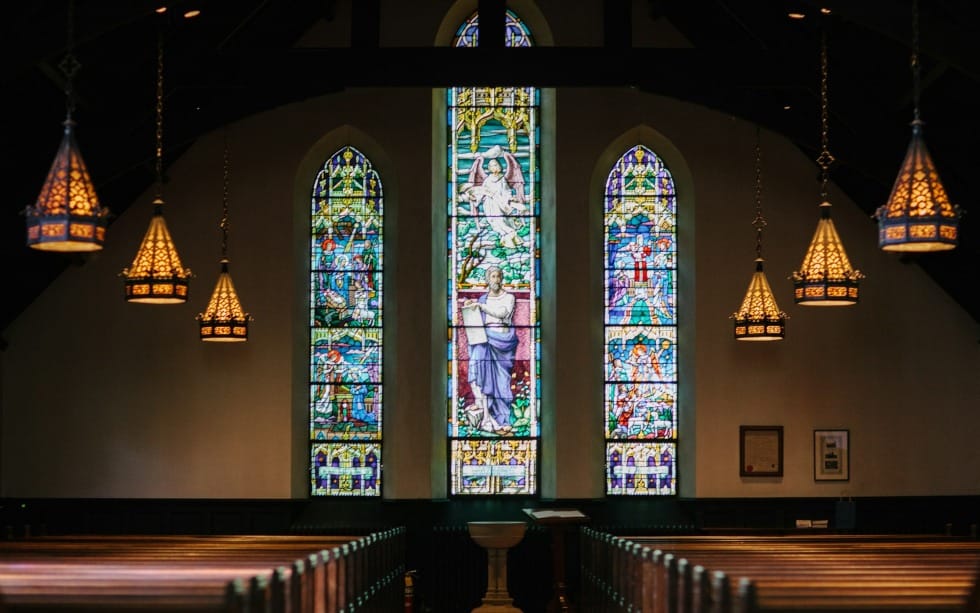Why Should I Engage With Church When There Are So Many Hypocrites?
If you operate outside the church, you will always be limited by the extent of your human effort. But if you operate within the church and open yourself up to partnering with other messy people, you follow God's structure and open yourself up for his supernatural blessing.

Running with others in partnership is tricky because effective partnerships require sacrifice. No two runners are alike. Some run at a sprint, while others go at a job. This means running in step requires compromise.
It’s the same in our Christian lives. No two believers have the same level of spiritual maturity. One will be more like Christ in some areas, and the other will be more like Christ in others.
It’s said we tend to judge ourselves based on our intentions and others by their actions. This same rule applies to the Christian life. It’s terribly tempting to look at all the ways Christ has changed us and then use these areas of Christlikeness as leverage to create a form of spiritual one-upmanship on others. We excuse our flaws, compare others to our greatest strengths, and live as though the definition of spiritual maturity is embodied in us...the "balanced people."
This is an all too common trend.
Second Degree of Separation
It was around ten years ago I first heard of the term “second-degree separation.” Haven’t heard of that phrase? You’re in good company. I hadn’t either.
Our church was heading up a National Day of Prayer event, and we’d partnered with a dozen other churches in our community to form a short prayer service over noon. Most of the churches were great, but as the date for the event approached, we noticed two churches in the area declined to participate.
When one of us mentioned this to another pastor who knew the leadership of these two congregations, this pastor replied, “Oh, I wouldn’t expect them to show up. Those churches believe in ‘second-degree separation.’” After a bit more digging, we realized they held a fundamentalist view that said because our church associated with churches they didn’t agree with theologically, they could not partner with us to pray.
Crazy as this seems, I’ve found second-degree separation thinking much more prevalent today than we might think. Sure, we might not use that fancy term, but we find other creative ways to hold others at arm’s length.
For example, in America today, there is a sharp divide between Christians who think differently on topics of social justice, race, and gender. And social media has become a swampland of opinion on these issues. Because these topics are often strongly tied to the context of local communities, it becomes almost impossible for someone in the inner city of San Diego to understand someone from a rural community in Nebraska.
This breakdown in cultural understanding is what makes partnerships difficult. But it’s only through effective partnerships that we can make a major impact.
The Church Is the Most Powerful Partnership
Because God made us to invest in partnership with others, this is why he gave us the church.
The real value of being part of a church congregation is not the Country Club perks that come from being part of a religious organization. The real value of the church is the way God uses the relational connections we establish to better shape our view of who God is and how we relate to others.
In Matthew 16:18, Jesus said, “I will build my church, and the gates of hell shall not prevail against it.” The primary reason we should be part of a church is because Jesus was its founder. He established it for our spiritual develop and his means of offering hope to the world.
There are two senses in which the word church is used. The first is in reference to the universal church of Christ that has existed throughout time and is not limited by geographical restrictions. The second is what we might call a local church, which is an assembly of believers who meet together to worship God and build one another up.
Every Christian is part of the universal church, but the outworking of this commitment is best expressed in a local church context. Through being part of a local church congregation, you interact with other Christians who can challenge you when you become complacent, cheer you on when you need encouragement, and cry with you when you are in pain.
Through the church, God brings his kingdom reign to earth and accomplishes his greatest purposes. If you operate outside the church, you will always be limited by the extent of your human effort. But if you operate within the church and open yourself up to partnering with other messy people, you follow God's structure and open yourself up for his supernatural blessing.





